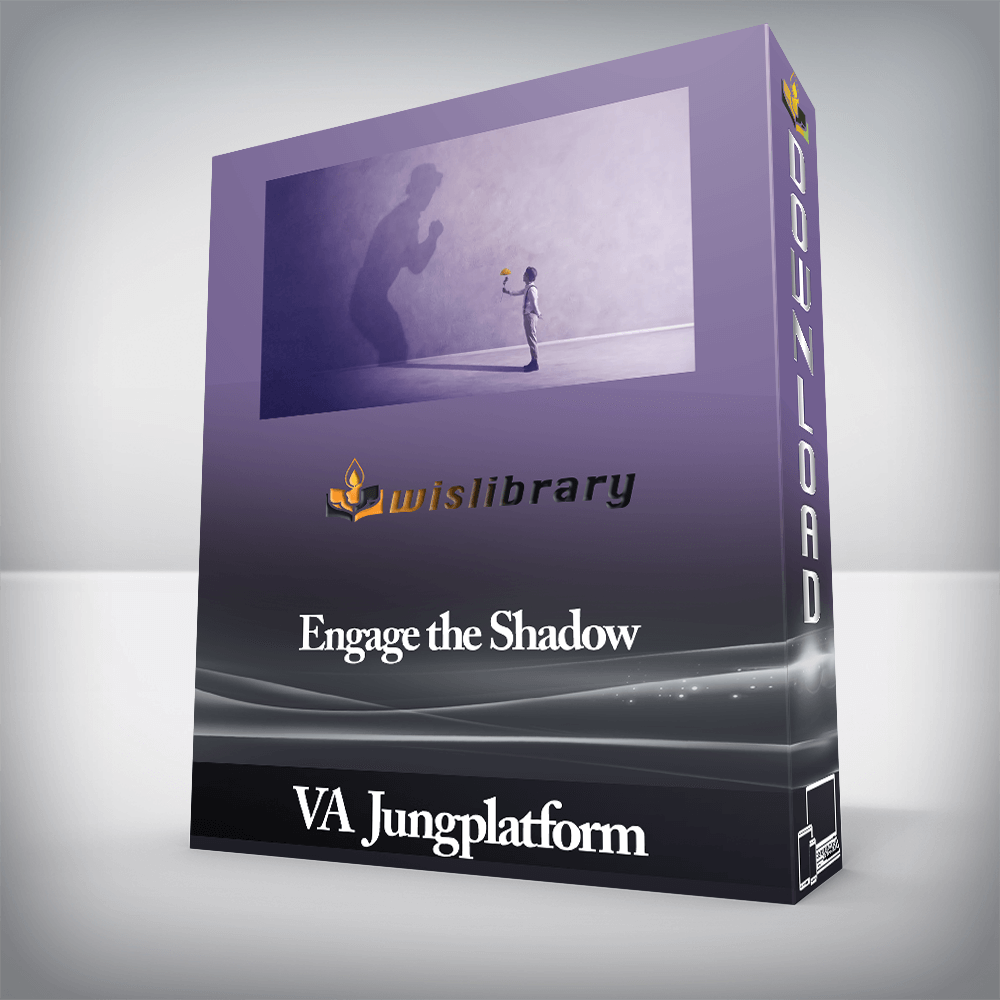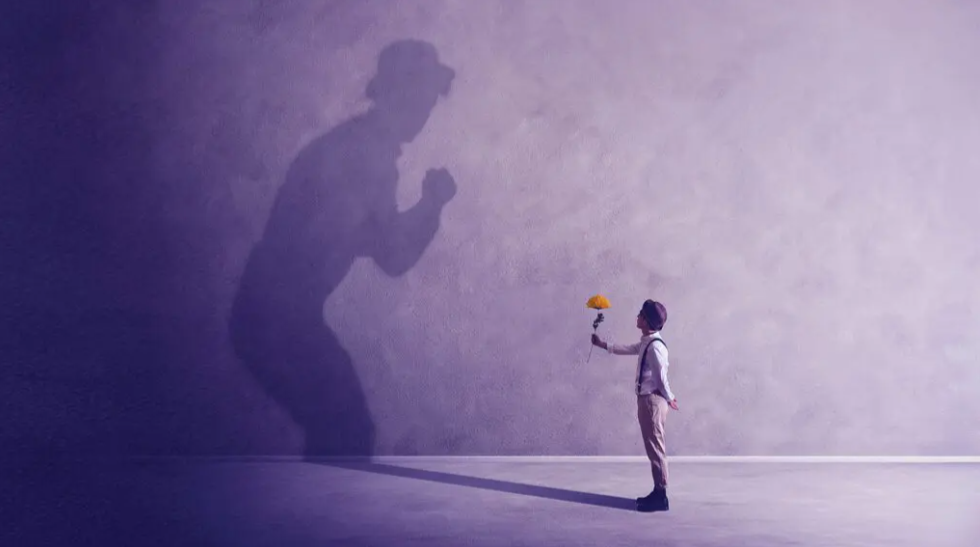

In Jungian psychology, the Shadow is a significant topic for reflection. The Shadow refers to the unknown and hidden dimensions of our being. We may either suppress the Shadow or overlook it throughout our personal development journey.
When learning about the Shadow, our sense of self expands. By acknowledging these parts of ourselves that sometimes are perceived as negative or undesirable, we may develop a more conscious relationship to it. We cultivate greater wholeness as a result of Shadow work.
Ten expert speakers in depth psychology will talk about the Shadow in this inspiring and soulful course.
What is the Shadow and how is it a part of our personal lives and society at large? What is the function of the Shadow? How can we recognize it in ourselves and learn its impact on our daily lives? What is the benefit of integrating the Shadow parts of ourselves for our personal life’s journey?
In this course, our knowledgeable group of experts will shed light on the concept of the Shadow. You will learn about practical tools for shadow work that you can apply on your own. The speakers will go into the personal as well as collective Shadow, the Shadow in relationships, and how the Shadow manifests in dreams, among other topics.
This course is interview-style. Machiel Klerk and Akke-Jeanne Klerk – Jung Platform founders and siblings – will be in conversation with experts. Each of the experts brings a unique perspective on the Shadow. Together, they offer a vivid depiction of the Shadow and its appearance in our everyday life.
The classes are available now.
Class 1: Introduction to the Shadow – James Hollis
One of the greatest contributions of Carl Jung is the idea of the shadow. The shadow refers to the parts of ourselves we are unaware of. Those parts of our own being often act independently of our wills and can be threatening to our ego.
In this class, world famous Jungian Analyst James Hollis offers an introduction to the shadow. The shadow in itself is not the problem, but it is how it plays out. We need to ask ourselves what does the shadow make us do and what does it keep us from doing?
As James Hollis will illustrate, shadow work helps us to become who we truly are by becoming ‘whole’.
Class 2: Shadow in Relationship – Polly Young-Eisendrath
In this class, Buddhist and Jungian Analyst Polly Young-Eisendrath explores ways to deal with the shadow in relationships. She talks about a method she has pioneered called Real Dialogue, which is an effective way to deal with conflict.
We tend to dehumanize the other, make the other an enemy, and devalue another person’s perspective when we feel unseen or unheard. Real Dialogue helps us to be aware of these destructive tendencies we bring into a relationship when we are emotional. Polly’s method helps to create a mindful space so that a real dialogue can take place.
Class 3: The Shadow in Astrology – Alexander von Schlieffen
Psychological astrology is a way to look at personality and its dynamics via the placement of the stars. Shadow work is a part of our personal evolution and there are many ways to address your personal shadow. One way is through studying your natal chart.
In this class, masterful astrology teacher Alexander von Schlieffen shares his discovery of the influence the North Node and the South Node have on shadow aspects in a person’s life. This depends on their location in one’s chart, planet relation and house they reside in.
Alexander will expand on Pluto and its influence and direct connection to the Shadow. By understanding these areas of the chart we are able to clearly see the necessary actions or non-actions one must take to lead a life of transformation and personal growth. He gives you practical suggestions on how to identify their placement in your chart and ways to understand how Shadow can affect your life.
Class 4: Shadow in Fairy Tales – Dariane Pictet
This class with Jungian Analyst Dariane Pictet examines what we can learn about ourselves by reading fairy tales. Dariane will show that fairy tales contain deep lessons and can help us better understand human nature. Fairy tales give insight into the internal struggles we have in life and how this may play out in our own psychological development. They do also reveal dark sides of human nature, both individual and collective.
Class 5: The Shadow of Our Own Storytelling – Craig Chalquist
In this class, depth psychologist Craig Chalquist will illustrate the importance of storytelling, and how we live our stories. The stories we tell ourselves and others shape us more than we realize. They inform our behavior and our interactions with others as well as the world itself. We all tend to think of the key stories about ourselves and the world around us as solid truths, rather than fiction. And there we get stuck, in the literalizing of our own tales. This session explores why stories matter, how they shape our lives, and what the shadow aspect is of our own storytelling. Craig will end with some suggestions on how to get unstuck from our literalized truths by re-storying our lives.
Class 6: Shadow and the Body – Tina Stromsted
In this class, one of our beloved teachers Tina Stromsted focuses on how the Shadow manifests itself in the body, especially in the case of trauma. She’ll explore how we can access and work with these embodied Shadow states. Stromsted gives us examples on how we can do depth healing work through embodiment where we meet the elements of trauma and shadow through dreams, embodied active imagination, dance/movement & the creative arts therapies.
She also explores how there are shadow elements in our addictive habitual patterns (not simply substances but a way of life that affects us all and impacts the planet). Through engaging the body we can bring creativity in life, nurture sexuality, develop the conscious/sacred feminine toward the sacred marriage, and live a meaningful, soulful, bodyful life!
Class 7: The Shadow and Addiction – Ashok Bedi
Carl Jung was instrumental in the founding of Alcoholic Anonymous (A.A.), even if Jung himself only learned about this at the end of his life. Jung thought that an alcoholic was searching for a spiritual experience and found that on a lower level in the spirits of the drink.
In this class, Jungian Analyst Ashok Bedi explores with us how the Shadow shows up in addictions. The dark Shadow almost completely overtakes a person who is under the spell of addiction. Bedi also shows how working with one’s Shadow is one of the ways out of the trap of addiction. A.A. is based on the 12 Steps program. Those working through addiction are facing deep Shadow work in the initial steps.
Class 8: The Shadow and (Lucid) Dreaming – Charlie Morley
In this session Charlie Morley, Buddhist and Lucid Dream Teacher, talks about ways to deal with your Shadow. First, he talks about how the Shadow appears in dreams and next he goes into Shadow work. In this talk he combines wisdom from Tibetan Buddhism with Western psychology. He will explain how to use lucid dreaming to help you befriend your Shadow and unlock the inner gold which is your creative potential.
Class 9: A Critical Reflection on the Shadow – Patricia Berry
In this session Jungian Analyst and creative thinker Patricia Berry, is reflecting on Jung’s concept of the Shadow. She takes several intriguing positions on the Shadow. For example, she discovers what insights we gain when we take on the perspective of the Shadow itself. She also looks at the Shadow when the sun shines directly above a person. In this case the person and the shadow are merging, while the person is not seeing their Shadow.
Class 10: Unveiling Shadow Aspects in Dreams – Machiel Klerk
This last class is offered by Machiel Klerk (author of the book Dream Guidance). He will talk about the different ways the Shadow manifests itself in dreams. Machiel will show us how to engage with our dreams using two techniques: Active Imagination and Dream Incubation.
Note: The interviews of this program were recorded for the Jung Platform summit ‘Engage the Shadow’.
There are no reviews yet.
You must be <a href="https://wislibrary.net/my-account/">logged in</a> to post a review.